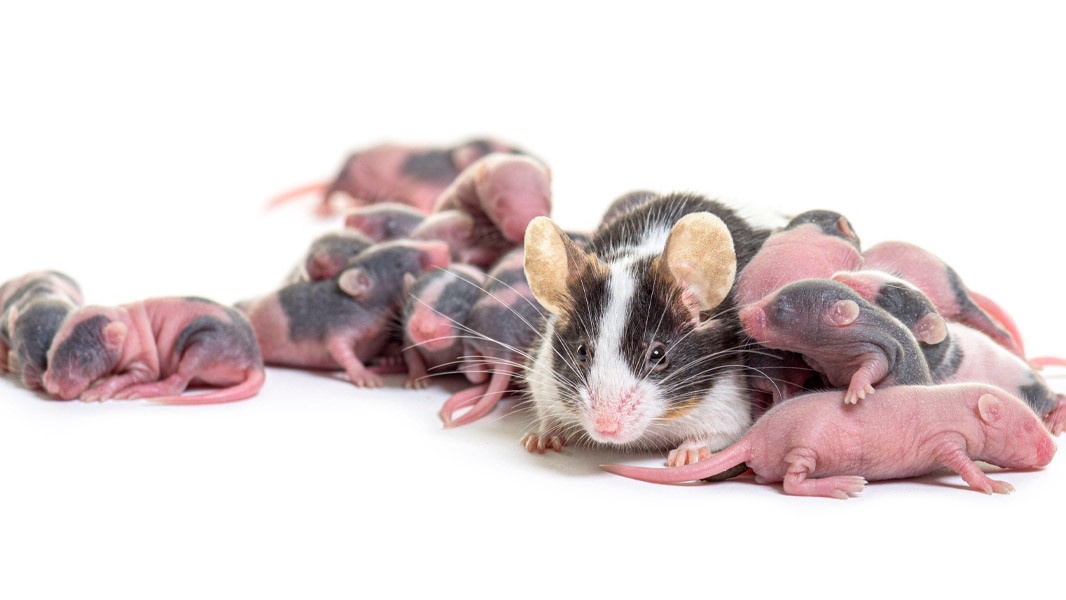Male mice can grow ovaries if their pregnant mums are iron deficient

The study is the first to show that low iron levels can affect fetal sexual development

Credit: Life on white/Alamy
Male mouse fetuses can develop female organs in utero if their mother is iron deficient during pregnancy, a study in Nature reports1.
This is the first-known example of a dietary mineral affecting sex determination, says Vincent Harley, a molecular geneticist at the Hudson Institute of Medical Research in Melbourne, Australia. This “presents an exciting new area of study”, he adds.
In mammals, biological sex is initially determined primarily by chromosomes — females typically have XX chromosomes whereas males typically have XY ones — and a primary gene then usually triggers formation of the corresponding sexual organs. Mice, for instance, with XY chromosomes usually develop testes if a gene called Sry is activated and ovaries if it is not.
The researchers behind this latest study had previously shown that Sry is activated by an enzyme called histone demethylase2, which needs iron to function, says co-author Makoto Tachibana, an epigeneticist at Osaka University in Japan. The team speculated that altering how iron is metabolized by cells could affect histone demethylase activity, which would in turn alter Sry expression.
Iron-deficient diet
Tachibana and his colleagues conducted a series of experiments to test the theory. First, they gave mice an iron-deficient diet for a month before pregnancy, and for two weeks during pregnancy, and compared them with mice that were fed a control diet. The levels of haemoglobin and red blood cells were lower among iron-deficient mice than in the control-diet mice. The embryos also showed signs of anaemia, but had the sexual characteristics expected from the genes.
When the team repeated the experiment with embryos that had a genetic susceptibility to compromised histone demethylation, 2 of 43 XY offspring carried by iron-deficient mothers developed female-typical sex organs. All the control mice grew sex organs typical of their chromosomes.
To test the effect of iron deficiency that isn’t caused by diet, the researchers gave pregnant mice an oral iron chelator — molecules that bind to iron and reduce its levels in the body — between days six and ten of embryonic development, when sexual determination typically occurs. The 72 embryos from these mice, which all had XY chromosomes, showed signs of anaemia. Four being born with two ovaries and one with one ovary and one testis.
Enjoying our latest content?
Login or create an account to continue
- Access the most recent journalism from Nature's award-winning team
- Explore the latest features & opinion covering groundbreaking research
or
Sign in or create an accountdoi: https://doi.org/10.1038/d41586-025-01740-6
This story originally appeared on: Nature - Author:Rachel Fieldhouse

















